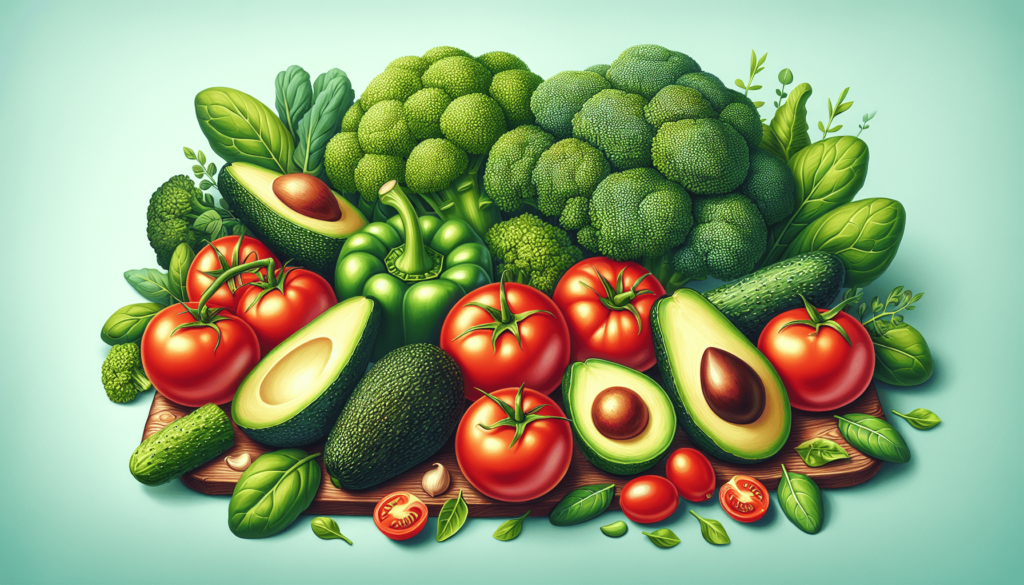Hi there! If you’ve been curious about the keto diet but aren’t quite sure what it entails, you’ve come to the right place. The keto diet is a high-fat, low-carb eating plan that has gained popularity for its potential weight loss and health benefits. By drastically reducing your carbohydrate intake and replacing them with fats, your body enters a state of ketosis, where it burns fat for fuel instead of carbs. This article will break down the basics of the keto diet and help you decide if it’s the right approach for you. Let’s dive in and explore the ins and outs of this trendy diet. What Is The Keto Diet?
Have you heard about the keto diet but aren’t quite sure what it entails? If you’ve been curious about trying it out to achieve weight loss or other health goals, you’ve come to the right place. Let’s dive into what the keto diet is all about and how it can benefit you.

What Exactly Is The Keto Diet?
The keto diet, short for ketogenic diet, is a high-fat, low-carb eating plan that has gained popularity in recent years for its potential health benefits. By drastically reducing your carb intake and replacing it with fats, your body enters a state of ketosis, where it burns fat for energy instead of carbohydrates.
Let’s Break It Down Further
Okay, so you know that the keto diet involves eating high fats and low carbs, but what does that actually look like? On a typical keto diet, you’ll be consuming about 70-75% of your daily calories from fats, 20-25% from proteins, and around 5-10% from carbohydrates. This macronutrient ratio is crucial for reaching and maintaining ketosis.
How Does The Keto Diet Work?
How exactly does the keto diet work its magic on your body? When you significantly cut down on carbs, your body’s glucose levels also drop. With limited glucose available for energy, your body turns to fat as its primary fuel source. This metabolic state is known as ketosis.
Let’s Chat About Ketosis
Ketosis is when your body produces ketones, which are byproducts of the breakdown of fats in the liver. These ketones are then used as fuel for your body and brain when glucose is scarce. Achieving and maintaining ketosis is essential for the success of the keto diet.

What Can You Eat On The Keto Diet?
Now that you understand the basics of the keto diet, let’s talk about what you can actually eat on this eating plan. While the keto diet is restrictive in terms of carbs, there are plenty of delicious and nutritious foods you can enjoy.
Embrace Healthy Fats
On the keto diet, fats become your best friend. Healthy fats like avocados, olive oil, coconut oil, nuts, and seeds should make up the bulk of your daily fat intake. These fats provide essential nutrients and help keep you feeling satiated.
Protein Is Important Too
While fats are the primary focus of the keto diet, protein is also crucial for supporting muscle growth and repair. Opt for high-quality protein sources such as poultry, fish, eggs, and tofu to ensure you’re meeting your protein needs.
Don’t Forget Your Veggies
Although the keto diet is low in carbs, that doesn’t mean you should skimp on vegetables. Non-starchy vegetables like leafy greens, broccoli, cauliflower, and zucchini are excellent choices that provide fiber, vitamins, and minerals without spiking your carb intake.
Say Goodbye To Carbs
One of the key principles of the keto diet is drastically reducing your carb intake. Avoid high-carb foods like bread, pasta, rice, sugar, and starchy vegetables to keep your body in ketosis.
Keep Hydrated
Staying hydrated is essential on the keto diet, especially when your body is reducing its water storage. Drink plenty of water throughout the day to prevent dehydration and support your overall health.
What Are The Potential Benefits Of The Keto Diet?
Now that you’ve got a solid foundation on what the keto diet is all about, let’s explore the potential benefits that come with following this eating plan.
Weight Loss
One of the primary reasons why many people turn to the keto diet is for weight loss. By burning fat for fuel instead of carbs, the keto diet can help you shed excess pounds and reach your weight loss goals.
Improved Energy Levels
Many individuals on the keto diet report feeling increased energy levels and mental clarity. This is due to the stable blood sugar levels and steady energy supply that come with burning fat for fuel.
Better Blood Sugar Control
For individuals with type 2 diabetes or insulin resistance, the keto diet can be beneficial for improving blood sugar control. By reducing carb intake, the body requires less insulin to process glucose, leading to better blood sugar management.
Enhanced Mental Focus
The ketones produced during ketosis are a preferred fuel source for the brain, which can lead to improved mental focus and cognitive function. Many keto dieters report feeling more alert and focused throughout the day.
Reduced Inflammation
Inflammation is a key driver of many chronic diseases, and the keto diet has been shown to reduce inflammation markers in the body. By cutting out inflammatory foods like sugar and processed carbs, you can support your body’s anti-inflammatory response.

Are There Any Potential Risks Of The Keto Diet?
While the keto diet boasts numerous benefits, it’s essential to be aware of potential risks that come with following this eating plan. Let’s delve into some of the risks associated with the keto diet.
Nutrient Deficiencies
Since the keto diet is restrictive in certain food groups, such as fruits, whole grains, and legumes, there is a risk of nutrient deficiencies if proper supplementation is not implemented. It’s essential to work with a healthcare provider or registered dietitian to ensure you’re meeting your nutrient needs on the keto diet.
Keto Flu
When transitioning to the keto diet, some individuals may experience symptoms known as the “keto flu.” This can include headache, fatigue, dizziness, and nausea as your body adapts to burning fat for fuel. Staying hydrated and increasing your electrolyte intake can help alleviate these symptoms.
Digestive Issues
A drastic change in diet can sometimes lead to digestive issues such as constipation or diarrhea. This is often due to a sudden increase in fats or a lack of fiber-rich foods in the diet. Adding more fiber from low-carb vegetables and staying adequately hydrated can help alleviate digestive discomfort.
Cholesterol Levels
While the keto diet has been shown to improve some markers of cardiovascular health, such as lowering triglycerides and increasing HDL cholesterol, it can also lead to elevated LDL cholesterol levels in some individuals. It’s essential to monitor your cholesterol levels regularly and consult with your healthcare provider if you have concerns.
Is The Keto Diet Right For You?
Ultimately, the decision to try the keto diet is a personal one that should take into account your health goals, lifestyle, and preferences. If you’re considering giving the keto diet a try, here are a few things to keep in mind.
Consult With A Healthcare Provider
Before starting any new diet plan, it’s crucial to consult with a healthcare provider or registered dietitian to ensure the keto diet is safe and appropriate for you. They can provide personalized recommendations based on your medical history, current health status, and dietary preferences.
Consider Your Lifestyle
The keto diet is a significant lifestyle change that requires careful meal planning, monitoring of macronutrient intake, and potential supplementation. Be honest with yourself about whether you have the time, resources, and commitment to sticking with the keto diet long-term.
Listen To Your Body
Pay attention to how your body responds to the keto diet and make adjustments as needed. If you’re experiencing negative side effects or not seeing the results you hoped for, it may be worth reassessing your approach or exploring other dietary options.
Be Patient And Persistent
Like any dietary change, transitioning to the keto diet takes time and persistence. Give your body time to adapt to burning fat for fuel and be patient with yourself as you navigate this new way of eating. Remember that everyone’s journey with the keto diet is unique, and what works for one person may not work for another.
In Conclusion
The keto diet is a high-fat, low-carb eating plan that can offer numerous health benefits, from weight loss and improved energy levels to better blood sugar control and enhanced mental focus. While the keto diet may not be suitable for everyone and comes with potential risks, many individuals find success and satisfaction with this approach to eating. By understanding the basics of the keto diet, considering its potential benefits and risks, and listening to your body throughout the process, you can make an informed decision about whether the keto diet is right for you. Remember to prioritize your health and well-being above all else, and always consult with a healthcare provider before making significant changes to your diet. Best of luck on your keto journey!


